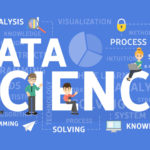Data analyst and business analyst roles are often used interchangeably in companies. Yes. Both perform similar functions, but there is a fundamental difference between these two roles. However, the job market for business analysts is slightly different from that for data analysts. Whereas data analysts are often in demand, business analysts enjoy more reliability and stability than their data analytics counterparts. But how do you get started as a business analyst? How can you transition from being a data analyst to a skilled business analyst? Is it a genuine choice to make this transition? What can you learn from someone who’s already there?
The answer is pretty simple. These two in-demand data roles have many similarities and differences in skill sets, job roles, and responsibilities. If you are considering a career in this exciting field, you can join the most comprehensive online data science course in Bangalore offered by Learnbay, designed for aspiring professionals. Here, you will be equipped with latest hands-on experience with real-world data problems
The goal is to outline the difference between a data analyst and a business analyst by distinguishing common tasks they perform, the skills required, and potential career paths after transitioning from one role to another.
Let’s start with the basic definitions.
Data Analyst
As a data analyst, you may think that business analysis is only for insiders of management who have influence over the company’s direction or decision-making decisions. However, some roles don’t require business expertise at all.
Data analysts are just data professionals who use data and translate them into information that can be used to solve business problems.
What does a data analyst do?
- Data analysts use various visualization tools, statistical analysis, and fundamental programming languages to gather, analyze, and review enterprise data to aid in driving business decisions.
- Data analysts analyze data to find hidden trends and patterns or track KPIs/metrics to assist business stakeholders in understanding and resolving various business problems.
- For instance, a data analyst can gather sales and marketing data for a company and create a dashboard that can assist the organization in understanding which products are working better, where they need to focus more, etc. Additionally, data analysts can examine prior marketing efforts, identify numerous elements affecting product sales, and make recommendations for enhancing the efficiency of marketing operations.
Essential skills for a data analyst include:
- Expertise with data mining techniques
- Strong problem-solving and advanced analytical skills
- Proficiency with Python programming
- Familiarity with SQL
- Be updated with cutting-edge technologies and frameworks like NLP and NN
Business analyst
The word “business” can conjure up many different images in your mind. The big corporate business is most prominent but can also refer to private businesses and startups. Business analysts are in charge of analyzing data about an organization/firm. They help their business owners better understand and analyze their businesses to make good decisions moving forward.
Generally, business analysts are the data geeks of a business. They provide a crucial function for organizations by unearthing information, analyzing data, and providing recommendations to improve performance.
What does a business analyst do?
Experienced experts known as business analysts use data to enhance current company procedures. They work together with diverse business partner teams to comprehend the main problems with different existing processes, spot areas for improvement, and put forward ways to increase the effectiveness of these processes.
Because of this, business analysts need to be well-versed in the goals and domain of the corporation. Business analysts may occasionally hold other titles like operations analyst, management analyst, or business data analyst.
Becoming a business analyst is not as easy as it seems. In order to become a business analyst, you need to have a solid understanding of the business, its goals and objectives, and how data can help you achieve those goals.
Skills that business analysts possess:
- Strong analytical abilities
- Proficiency with process modeling tools(e.g., Microsoft Visio)
- Strong computer skills: proficiency of Microsoft Word, Excel, and PowerPoint (or similar tools)
- Project management expertise and knowledge
- Understanding of modern digital technologies
- Agile development methodology
Difference Between a Data Analyst and a Business Analyst
Data analysts and business analysts play major roles in developing the systems and processes to solve real-life business problems. However, each is focused on a different aspect of the modern successful firm. The business analyst will be more focused on finding solutions to problems found within an organization, whereas the data analyst would be more concerned with gathering large amounts of data and converting it into usable insights.
Common Skills between data analyst and business analyst
Here are the popular skills and abilities that both data analysts and business analysts possess:
- Strong communication abilities, including the capacity to convey complicated information to all organizational levels
- Intellectual curiosity
- Mathematical and analytical mind
- Data Storytelling
- Ability to think critically
- Be comfortable to learn, utilize and staying updated with cutting-edge tools and technologies
- Analytical problem-solving abilities and the capacity for “big picture” thinking
Responsibilities
- Data analyst
Data analysts gather, organize, and analyze data to help make decisions. They typically work in teams with other analysts and developers to help create an understanding of the business’s goals. Business analysts are responsible for helping businesses make better decisions by analyzing data about their current situation and identifying opportunities for improvement.
- Gaining an understanding of data using statistical techniques
- Database Management
- Using primary or secondary sources to get information
- Finding, examining, and understanding patterns or trends in huge and complicated data sets
- Data filtering, finding, and fixing code errors
- Improving the effectiveness and quality of statistics
- Prioritizing business needs in collaboration with management
- Identifying opportunities for process improvement
- Business Analyst
Generally speaking, business analysis is a field that combines the real-world knowledge of a data analyst with the business skills of an accountant or financial analyst. Business analysts are responsible for analyzing data and recommending how to use it to improve operations and increase revenue.
- Analyzing a lot of complicated data
- Finding areas that require improvement
- Taking care of business needs
- Working with internal teams and other parties to escalate and resolve issues
- Data analysis to identify new trends
- Offering potential solutions
Keep in mind that the responsibilities of a business analyst vary by sector, but their main goal is to analyze data and draw conclusions from it so that they may make wise business decisions.
Qualification
As a business analyst, you’ll be expected to have a background in quantitative fields (such as statistics) and a depth of knowledge about your industry (domain). You should also be comfortable working with large amounts of data and using software such as Excel or SQL.
Similarly, to become a data analyst, you must possess an undergraduate degree in the STEM field with experience in computer programming and analytics. Further, having a relevant master’s degree will also help you get your desired job.
Salary Outlook
By now, you must be wondering which position pays more. As with any career, various factors, such as geographic region, experience level, organization, and job position, can impact how much a Business Analyst or Data Analyst can expect to make.
The annual pay of a data analyst can reach upto $ 72,250 on average. It also depends on the location, department, experience level, job duties, and geographic area.
On the other hand, an average annual income of $78,500 is common for business analysts. Senior positions might pay up to $110,000 annually for those more qualified. As a result, the salary for a business analyst differs from a data analyst.
Which is the Better Career Choice?
Both positions provide excellent and lucrative career prospects and are now in high demand. Drawing comparisons between the two depends on various variables, including each person’s educational background, personal interests, and other considerations.
On the other hand, a career as a data analyst can be a good fit for you if you have a passion for numbers and are interested in math and statistics. If you are more motivated to resolve business issues and processes, go for a business analyst position.
So, can a data analyst become a business analyst (and vice versa)
If you want to switch your role in data analytics, you may wonder how much the skills overlap. From my perspective, the answer is “not as much as you may think,” so doing a clear analysis of both roles and their requirements, outlined here, will help you in some way to make this switch in your career. Whether being a tangible data analyst or going into business analytics, I believe these roles are complementary and will only become more so as time progresses. There’s an exciting future ahead for both disciplines and much to be gained from exploring the overlap between them.
If you are passionate about solving problems, you can become a business analyst. But most business analyst positions expect you to be majoring in computer science or engineering, so understanding how computers work has advantages. If you are not interested in the technicalities and would rather be working on a project with a diverse team, then data analysis may be more appropriate for you.
Last words
The complexity behind business and data analysis is immense. While Business analysts work primarily in the business part, and Data analysts work primarily in the data part; it would be unfair to say that their daily responsibilities do not overlap. Every job title takes a different approach; I am certain there are many instances in which both roles are needed at once, and various analytics will address a particular problem differently within the same scope of work.
These are just a few similarities between a business analyst and a data analyst. One can learn from many others as she/he moves up from one to another. The most important thing is to remember that you should always upgrade your skills with a certified data science course to be at the top of the competition, or it may possibly lead you to a dead-end road throughout your career.
Good luck!








